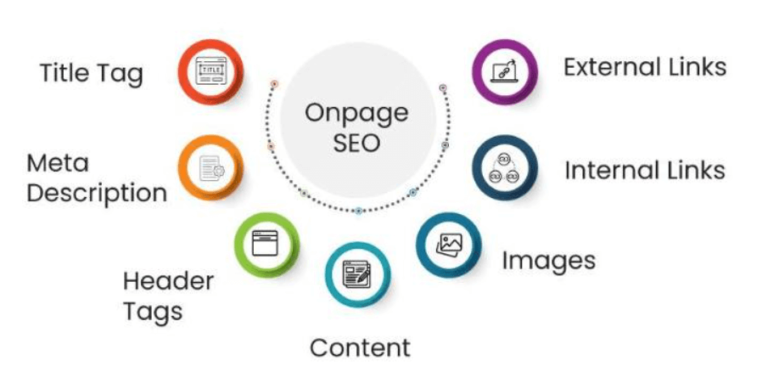Top 5 Bookkeeping Tips Every Small Business Owner Needs to Keep Their Business Profitable
Running a small business comes with a unique set of challenges, and one of the most critical yet often overlooked areas is bookkeeping. Good bookkeeping isn’t just about recording transactions—it’s the backbone of financial health that allows small businesses to control costs, optimize spending, and improve profit margins. Many small business owners turn to professional bookkeeping services for small businesses to adopt smart bookkeeping habits, gain clearer financial insight, avoid costly mistakes, and make strategic decisions that boost profitability.
Here are the top five bookkeeping tips every small business owner should implement to keep their business financially strong.
1. Keep Business and Personal Finances Separate
One of the most fundamental bookkeeping habits is to separate your business and personal finances completely. Mixing personal and business transactions in one bank account can create confusion, errors, and challenges during tax time.
Why it matters:
Keeping accounts separate simplifies tracking business expenses and income, making it easier to measure true profitability. It also helps in providing clear documentation for tax deductions and compliance. If your personal spending gets mixed with business funds, it becomes difficult to justify expenses and may raise red flags with tax authorities.
How to implement:
- Open a dedicated business bank account and credit card.
- Pay yourself a salary or draw rather than mixing funds.
- Use accounting software that links only to your business accounts.
This clean separation will save you time and stress when reconciling accounts or preparing financial statements, and it ultimately protects your business’s financial integrity.
2. Record Every Transaction Promptly and Accurately
Delaying bookkeeping tasks or missing transactions can quickly snowball into financial chaos. Small businesses often struggle with staying on top of receipts, invoices, and payments—but prompt and precise recording is essential.
Why it matters:
Accurate transaction records provide a real-time view of cash flow and expenses. Without up-to-date bookkeeping, you risk overlooking unpaid invoices, overspending, or missing tax deductions, which all negatively impact profitability.
How to implement:
- Set aside a regular time each day or week to update your books.
- Use bookkeeping software with mobile apps to capture receipts and record expenses on the go.
- Automate invoicing and payment reminders to speed up cash inflow.
By building a habit of timely bookkeeping, you’ll always have an accurate picture of your financial status and can make proactive decisions to keep costs under control.
3. Monitor Your Cash Flow Religiously
Cash flow is the lifeblood of any small business. Even profitable companies can face trouble if their cash flow is mismanaged. Regularly monitoring cash inflows and outflows allows you to plan for expenses, avoid overdrafts, and maintain a healthy buffer.
Why it matters:
Without consistent cash flow oversight, you may miss warning signs like overdue payments or unexpected expenses that could threaten operations. Good bookkeeping helps forecast future cash needs so you can negotiate better payment terms or secure financing if needed.
How to implement:
- Use your bookkeeping system to generate weekly or monthly cash flow statements.
- Track when invoices are due and follow up promptly on late payments.
- Categorize expenses into fixed, variable, and discretionary to understand where you can cut costs if necessary.
Regular cash flow reviews empower you to optimize spending and avoid costly shortfalls, safeguarding profitability over the long term.
4. Keep Detailed Records of All Expenses
Many small business owners underestimate the importance of keeping detailed expense records. Every coffee run, software subscription, or office supply purchase adds up—and if you don’t track these expenses carefully, you might miss opportunities to reduce costs or claim tax deductions.
Why it matters:
Good expense tracking helps identify wasteful spending and supports smarter budgeting. It also provides a paper trail required for tax deductions, which can directly improve your bottom line.
How to implement:
- Save all receipts, whether digital or physical, and categorize them promptly in your bookkeeping software.
- Review monthly expense reports to identify trends or unnecessary spending.
- Consult with an accountant regularly to ensure you’re maximizing deductible expenses.
By staying meticulous with expense records, you can spot areas to optimize costs and increase your net profit margin.
See Also: What Is On‑Page SEO and Why Every Website Needs It
5. Reconcile Your Accounts Regularly
Reconciling your bank and credit card statements against your bookkeeping records is a critical step often overlooked by small business owners. This process confirms that your books are accurate and complete.
Why it matters:
Regular reconciliation helps detect errors, fraudulent transactions, or unrecorded fees before they escalate into bigger problems. It also ensures that your financial reports reflect reality, providing a trustworthy foundation for decision-making.
How to implement:
- Schedule monthly reconciliation sessions, aligning your bookkeeping data with bank and credit card statements.
- Investigate and resolve any discrepancies immediately.
- Use software that offers bank feeds and automatic reconciliation tools to save time.
A disciplined reconciliation routine builds confidence in your financial data, which is essential when applying for loans, attracting investors, or planning growth.
Final Thoughts
Bookkeeping might not be the most glamorous part of running a small business, but its impact on profitability cannot be overstated. By keeping business and personal finances separate, recording transactions promptly, monitoring cash flow, tracking expenses meticulously, and reconciling accounts regularly, small business owners create a solid financial foundation.
These bookkeeping habits do more than just keep the books balanced—they empower you to control costs, optimize spending, and make smarter decisions that increase your profit margins. If you’re feeling overwhelmed by bookkeeping tasks, consider partnering with a professional small business bookkeeper who can help streamline processes and provide expert insights.
In the end, strong bookkeeping is a strategic investment that protects your business and supports its long-term success. Start building these habits today to keep your small business profitable and thriving.






